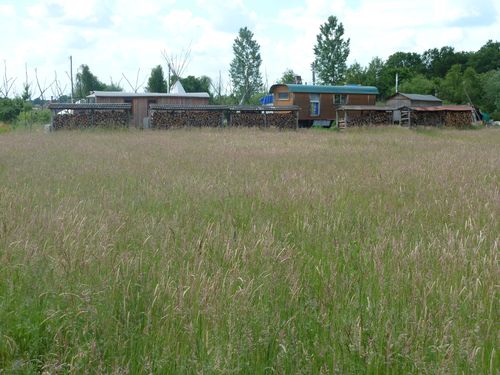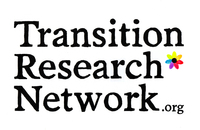Building Resilience

How research collaborations can contribute to Transition's overall goal of building resilience
+context
The explicit goal of Transition is to build resilience through community action. Resilience is the capacity of a complex system to maintain functional continuity in the face of change, which is necessary for its survival in an inherently dynamic and unpredictable world. Several centuries of continuous economic growth fueled by increasing consumption of fossil fuel energy have allowed global economic, political and social systems to develop a chronic lack of resilience. This is reflected in current global difficulties in undertaking meaningful action on climate change and peak oil, and to introduce alternatives to economic systems where constant financial growth is the single target output. Such action as has been taken is not only inadequate, and often directly counterproductive, its subservience to the goal of growing the cash economy means it inevitably contributes to undermining resilience.
+problem
Universities and other mainstream research organisations thoroughly express the chronic, and self-amplifying, lack of resilience of the broader systems in which they are embedded. The research efforts that come out of them almost inevitably reflect this, and themselves tend to undermine, rather than promote, resilience in the settings in which they occur.
+background
The notion of resilience only makes sense in relation to a defined set of system outputs. In other words, we have to ask what features of the system we wish to make resilient. Here, following ongoing work on characterising and operationalising resilience in Transition, we have defined these target outputs in relation to the three primary ethics of permaculture: Earth Care, People Care, and Fair Shares. People care is central among these: the aim of Transition is to protect and enhance our capacity to support individual and collective wellbeing. Earth Care follows logically from this: if our people care mechanisms are not ecologically sustainable, they can only persist if they draw on resources from elsewhere, and thus violate the Fair Shares ethic.
Most university-based research efforts narrowly focus on dubious quantitative metrics derived from a fixation with ongoing institutional growth in an increasingly competitive environment. For tenured academics, these include publications that will score high REF returns and securing future research income. For early career researchers, these may be the publications or other contributions to the academy – not the research environment - that can lead to tenure or at least further employment. Doctoral students need to ensure that the data they produce will satisfy the demands of examiners, while masters and undergraduate students undertaking dissertation research will usually be under pressure to achieve the highest possible grade. Viewed in narrow perspective, these targets rarely synergise with, and often conflict with, Transition's aims of building resilience. Concerns with impact broaden the picture beyond purely academic concerns, but do not necessarily imply positive contributions to wellbeing, sustainability, equity, or resilience in any of these.
However, put into broader context and viewed as part of the Transition process themselves, these criteria need not be in opposition to efforts at building resilience. Creative approaches to research collaborations that view researchers as part of the transitioning community and their work as part of the transition process can identify synergies among institutional demands and other needs within the group or community. Honouring and respecting the specific needs of researchers makes it easier to identify their distinctive contributions to Transition.
+solution
Therefore: treat the primary goals of research not as ends in themselves, but as subordinate to the broader goals of growing a resilient Transition Initiative, and in turn building a resilient community and creating a resilient future. Seek to identify where these may be in synergy, and design research projects in such a way as to maximise these. Employ research and interpersonal practices that contribute to building resilience in the way key goals are delivered. Research should also be carried out in ways that support and enhance personal resilience.
